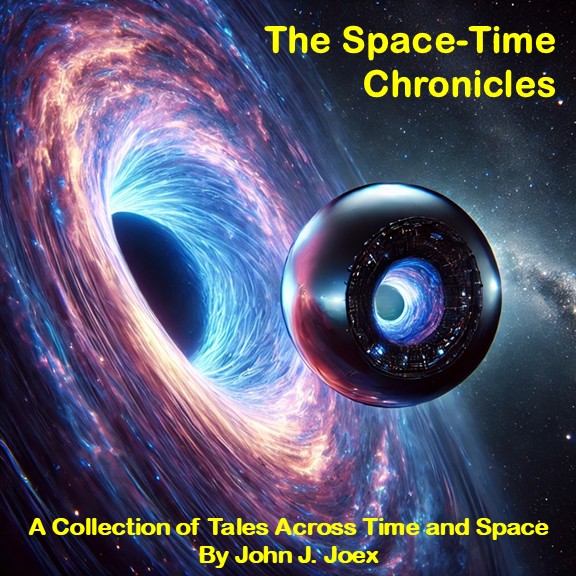 The announcement of a new Star Trek television series two weeks ago of course set off some major tremors among sci fi fandom, but I believe that a very important part of this announcement has been thus far overlooked and it has major implications to the changes in the TV landscape coming over the next few years. The plan is that the first episode of the new series (which we still know very little about) will debut on CBS in early 2017, but then it will move to that network’s streaming service CBS All Access. That service, which is available today for a monthly subscription fee of $5.99, has a large catalog of the network’s prior shows and also airs episodes of some of its most recent entries Hulu-style (though not all of them). When the new Star Trek series moves to CBS All Access, it will be the first exclusive new show available through that service (unless they rush something else in ahead of it). Trek fans will have to shell out the seven bucks per month if they want to follow the series after its debut (now word at this point if all episodes will be available at once like Netflix and Amazon typically do, or it will come out one week at a time). I haven’t heard too much grumbling about this, though, so either the fact hasn’t sunk in yet or Trek fans are more than willing to pony up for a new television entry in that franchise.
The announcement of a new Star Trek television series two weeks ago of course set off some major tremors among sci fi fandom, but I believe that a very important part of this announcement has been thus far overlooked and it has major implications to the changes in the TV landscape coming over the next few years. The plan is that the first episode of the new series (which we still know very little about) will debut on CBS in early 2017, but then it will move to that network’s streaming service CBS All Access. That service, which is available today for a monthly subscription fee of $5.99, has a large catalog of the network’s prior shows and also airs episodes of some of its most recent entries Hulu-style (though not all of them). When the new Star Trek series moves to CBS All Access, it will be the first exclusive new show available through that service (unless they rush something else in ahead of it). Trek fans will have to shell out the seven bucks per month if they want to follow the series after its debut (now word at this point if all episodes will be available at once like Netflix and Amazon typically do, or it will come out one week at a time). I haven’t heard too much grumbling about this, though, so either the fact hasn’t sunk in yet or Trek fans are more than willing to pony up for a new television entry in that franchise.
Of course younger viewers may not realize the bold journey that franchise took in the 1980’s when Star Trek: The Next Generation shunned the broadcast networks and went straight to syndication for its original run. Star Trek: The Original Series had never drawn high ratings when it aired on NBC in the late 60’s, and it wasn’t until the show was sold into syndication that it launched into a phenomenon. When TNG was in the works, the producers wisely decided to keep the show in the syndication market as the broadcast networks were very leery about big budget sci fi after expensive failures Battlestar: Galactica and Buck Rogers in the 25th Century in the late 70’s plus Amazing Stories and the Twilight Zone revival in the mid-80’s. Star Trek: TNG turned into a huge hit in syndication and revived the genre on television as it paved the way for more sci fi in the off-broadcast market over the next ten plus years which included major entries like Babylon 5, Star Trek: Deep Space 9, Highlander, Stargate: SG-1, the Hercules / Xena shows and more.
The new Star Trek series could have a similar impact when it moves to CBS All Access in 2017. In the current “too much television” era (more on that at this link), there is no shortage of sci fi across the broadcast and cable channels, but many would argue that the quality is lagging well behind the quantity. And many of these shows are disappearing after a season or two as the networks take a spaghetti-against-the-wall approach in an ongoing race to find the next Walking Dead or Game of Thrones. Should the new Star Trek prove successful on the CBS streaming service (and it almost certainly will), we may see a mass migration of the genre to that platform just like we saw the syndication/off-network boom in the 90’s. We have already seen initial steps in this direction with the Daredevil/Defenders series on Netlix and the upcoming Man in the High Castle on Amazon, just to name two. And the move toward syndication had already started to manifest itself in the 80’s prior to the debut of TNG with shows like Tales from the Darkside and Friday the 13th: The Series. The Star Trek franchise then hoisted the torch and blazed the path further and could likely do the same thing again thirty years after the debut of TNG. The fact is that sci fi shows have rarely drawn large audiences on the old school networks, and fans will argue that they are much more likely to watch their shows in delayed viewing and/or binge-watch sessions, thus making the streaming services the best landing place for these types of shows.
To those who are resistant to the idea of having to pay for a service like CBS All Access, you need to realize that this is the direction television is heading anyway. The old-style, add-supported programming as well as the cable bundling approach is quickly becoming a dinosaur in the digital age, and the new VOD and/or binge-watching models are becoming the norm. We are already paying for services like Netflix, Amazon, and Hulu, and HBO has its HBO Now service available with Showtime and Starz not far behind. Plus, ABC and NBC are talking about following a path similar to CBS All Access, and the fact is that you can subscribe to all of these and more a la carte and still pay less than the typical cable/satellite bill these days. Basically, it is looking like the Roku model of watching television (more on that at this link) is on the way to becoming the dominant paradigm within the next few years. And while the free, over-the-air broadcast networks may never completely go away, they may shift to less original content and may act primarily as promotions for the pay services they are associated with.
And I believe that the new Star Trek series will be an important part in these changes coming to the television landscape over the next few years. We don’t even know the specifics of that show, but sci fi fans are already pumped for its arrival and will likely follow it to whatever platform it runs on. And with that major franchize blazing the way once again, the sci fi genre and television in general will boldly take the next step into the new future.







Heck, I would have paid the $6.99 a month for a second season of Star-Crossed. I will definitely pay it for StarTrek!